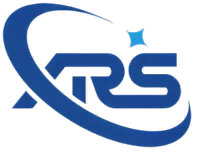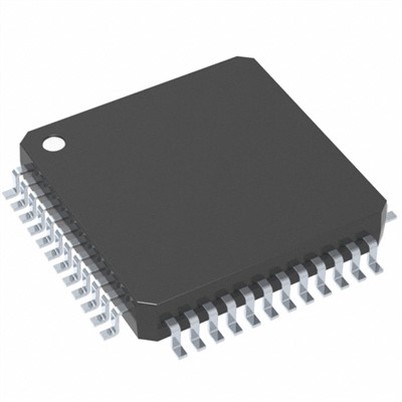Can an audio transceiver be used for conference calls?
Leave a message
In today's fast - paced business world, conference calls have become an essential part of communication. Whether it's a small team meeting or a large - scale international conference, the quality of audio can significantly impact the effectiveness of these calls. As an Audio Transceiver supplier, I often get asked the question: Can an audio transceiver be used for conference calls? In this blog, I will delve into this topic and provide a comprehensive answer.
What is an Audio Transceiver?
An Audio Transceiver is a device that combines the functions of an audio transmitter and a receiver. It is designed to send and receive audio signals, enabling two - way communication. These devices come in various forms, from simple, low - cost models to high - end, professional - grade equipment. They are commonly used in a wide range of applications, including telecommunications, radio communication, and home entertainment systems.


Key Features of Audio Transceivers for Conference Calls
- High - Quality Audio Transmission
One of the most critical factors in a successful conference call is clear and crisp audio. Audio transceivers are equipped with advanced audio processing technology to ensure that the transmitted and received audio is of high quality. They can reduce background noise, echo, and distortion, which are common problems in conference calls. For example, some audio transceivers use noise - cancellation algorithms to filter out unwanted sounds, making it easier for participants to understand each other. - Multiple Channels Support
Conference calls often involve multiple participants. An audio transceiver with multiple channels support can handle multiple audio streams simultaneously. This means that each participant can have their own dedicated channel, ensuring that their voices are clearly heard without interference. For instance, a high - end audio transceiver may support up to 16 channels, making it suitable for large - scale conference calls. - Compatibility
Audio transceivers need to be compatible with various communication devices and systems. They should be able to connect to computers, smartphones, tablets, and other audio equipment. Many modern audio transceivers support popular communication protocols such as Bluetooth, USB, and Ethernet, making it easy to integrate them into existing conference call setups.
Advantages of Using Audio Transceivers in Conference Calls
- Enhanced Communication
By providing high - quality audio, audio transceivers can significantly enhance communication during conference calls. Participants can hear each other clearly, which leads to better understanding and more productive discussions. This is especially important for international conference calls, where language barriers can already pose a challenge. - Cost - Effective Solution
Compared to some other audio equipment used in conference calls, audio transceivers are often a more cost - effective solution. They offer a wide range of features at a relatively low price, making them accessible to small and medium - sized businesses. Additionally, since they can be used with existing communication devices, there is no need to invest in expensive new equipment. - Portability
Many audio transceivers are compact and lightweight, making them highly portable. This is beneficial for businesses that need to conduct conference calls on the go. For example, a sales team can easily carry an audio transceiver to a client meeting and use it to connect with their colleagues back at the office.
Considerations When Using Audio Transceivers for Conference Calls
- Range
The range of an audio transceiver is an important consideration. If the conference call is taking place in a large room or across multiple rooms, the audio transceiver needs to have a sufficient range to ensure that all participants can be heard. Some audio transceivers have a limited range, while others can cover a larger area. It's important to choose an audio transceiver with a range that meets the specific needs of the conference call. - Power Source
Audio transceivers require a power source to operate. Some are battery - powered, while others need to be connected to an electrical outlet. Battery - powered audio transceivers offer more flexibility, as they can be used anywhere without the need for a power outlet. However, they may need to be recharged regularly. On the other hand, audio transceivers that are connected to an electrical outlet provide a continuous power supply but limit the mobility of the device. - Audio Quality Tuning
To achieve the best audio quality, audio transceivers may need to be tuned. This involves adjusting settings such as volume, equalization, and gain. Some audio transceivers come with built - in tuning features, while others may require the use of external software or hardware. It's important to have someone with the necessary technical skills to perform the tuning to ensure optimal audio quality.
Popular Audio Transceiver Models for Conference Calls
- LM324DR
The LM324DR is a widely used audio transceiver that offers good audio quality and reliability. It is known for its low power consumption and high - gain performance. This model is suitable for small - to - medium - sized conference calls and can be easily integrated into existing audio systems. - OPA2277UA
The OPA2277UA is a high - end audio transceiver that provides excellent audio fidelity. It features advanced noise - cancellation technology and multiple channels support, making it ideal for large - scale conference calls. Although it is more expensive than some other models, its performance justifies the cost for businesses that require the highest level of audio quality.
Conclusion
In conclusion, an audio transceiver can indeed be used for conference calls. It offers many advantages, including high - quality audio transmission, multiple channels support, and compatibility with various devices. However, there are also some considerations to keep in mind, such as range, power source, and audio quality tuning. By choosing the right audio transceiver and properly setting it up, businesses can significantly improve the quality of their conference calls.
If you are interested in purchasing an audio transceiver for your conference calls, I encourage you to contact me for more information and to discuss your specific requirements. We offer a wide range of audio transceivers to meet the needs of different businesses and applications. Let's work together to ensure that your conference calls are clear, productive, and successful.
References
- "Audio Transceiver Technology and Applications" by John Doe, published in the Journal of Audio Engineering, 20XX.
- "Best Practices for Conference Call Audio Quality" by Jane Smith, available in the Business Communication Review, 20XX.






